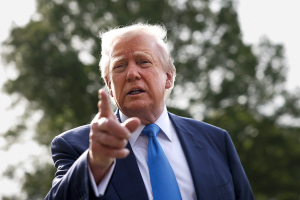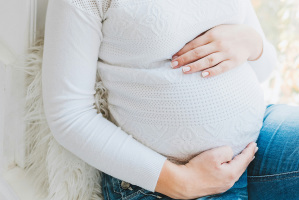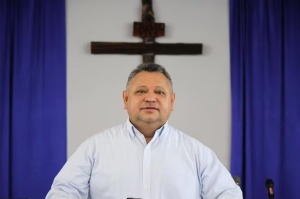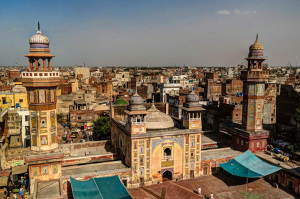Evangelical Leader Irritated by Stereotypes in Post-Election Coverage
A prominent evangelical from Fuller Theological Seminary in Southern California is irritated for being stereotyped by the national media since the election of Democrat Barack Obama as U.S. president.
"[Lisa] Miller [of Newsweek] seems to think that the election returns have reminded us all of something that had been forgotten by many in the media – that we white Evangelicals are not the only significant religious presence in American life. I follow the media quite carefully, and had not noticed that we evangelical types were being treated as if we were the only game in town," said Richard J. Mouw, president of Fuller.
In Miller's "A Post-Evangelical America," published days after the presidential election, she outlines how Obama shed light on the diverse religious groups that helped him on the path toward his victory on Nov. 4.
"As an evangelical I hadn't realized that I had been 'post-ed' as a result of the Obama victory," Mouw said in a commentary in Washington Post and Newsweek's "On Faith" forum.
White evangelicals put George W. Bush in the White House and have been the go-to religious group for the media, dominating headlines over other faith groups. But this election season, Miller points to the millions of other religious voters who flexed their muscles this election season, supporting Obama and making their own headlines.
Jim Wallis, founder of Sojourners and a progressive evangelical, commented to The San Francisco Chronicle: "Black and Latino Christians led the surge this time. They were engaged by the Obama campaign, and they were in alliance with a whole new generation of the faithful, of young believers - evangelical, Catholic, mainline Protestant, Muslim, Jewish – who joined together with different people of faith and color. Around 30 percent of young evangelical voters came out for Obama. That's very significant."
Mouw said he was further irritated by a column in The New York Times that praised the Americans who made Obama the country's first black president but painted a grim picture of those who supported gay marriage bans in several states. "We have to continue to combat those horrible folks in California and elsewhere who, having been duped by the Bush administration's 'demagogic exploitation of homophobia,' supported the ban on same-sex marriages," Mouw paraphrased from the column.
This is not a time to "ridicule" those who hold conservative values or to silence them in the public debates, Mouw stressed, but it is a time to realize that evangelicals are not monolithic and occupy different places on the political spectrum.
And some, including those who did not vote for Obama, he said, are also celebrating the election of America's first black president.
"If there is a lesson to be learned about evangelicalism these days, it is not that we have been banned from the public square because of the Obama election, but that we are not as easily stereotyped as the Lisa Miller and others want to think," Mouw stated.
"We have come to an evangelical faith as people from a variety of backgrounds, experiences, and economic levels," he continued. "We represent every 'tribe and tongue.'"
Stereotypes of evangelicals have come as the movement has continuously defended life and traditional family values.
While Wallis believes the "values" issues during this election season were overtaken by a broader agenda of poverty, the environment, the economy and the war in Iraq, many evangelicals have not re-prioritized and still view life as the most important issue, even if that means being a single-issue voter.
Geoff Surratt, a pastor at Seacoast Church in Mt. Pleasant, S.C., isn't a fan of single-issue voters and is "frustrated" that the one issue of abortion has to determine his vote every four years. But even after decades of choosing the pro-life candidate and still not seeing Roe v. Wade overturned, he says he hasn't abandoned the cause.
Before the election he stated that he would go to the booth and "pull the lever for the pro-lifer."
"He may or may not be the best man for the job, but for single issue voters that's not the point," he stated in his blog. "Maybe this time it will turn out differently. Maybe this time he will change things. Maybe this time my vote will save an unborn baby's life. I have to try."
Post-election polls showed evangelicals voted overwhelmingly for McCain (73 percent, according to The Pew Forum), as they did for George W. Bush in 2004 (79 percent).
"Despite some evangelical leaders' attempts to shift attention from traditional social issues to what they term a 'broadening agenda,' we are not seeing a significant difference in evangelical support between polling in the 2004 election and polling for the 2008 election," said James Tonkowich, president of The Institute on Religion and Democracy.
Mouw acknowledged that many evangelicals, including himself, are concerned about abortion and family issues with the election of a pro-choice candidate who opposes a constitutional ban on gay marriage but says the faith group spreads its care and concern over many other causes.
"While the liberal commentators stereotype us as single-issue theocrats, the young people from Mars Hill Bible Church in Michigan are in Rwanda working on clean-water projects, the Saddleback folks are addressing issues of HIV/AIDS, inner-city rescue missions are preparing beds and meals for the homeless, and our Fuller Seminary students are advocating for a 'greener' campus," Mouw stated. "And there are many more stories to tell about peacemaking, economic empowerment, and efforts to liberate the victims of the sexual slave trade."
Mouw, who describes himself as an evangelical who doesn't always get very high marks from the Religious Right for the stands he takes but still shares some of their views on some key issues of public policy, hopes this election will drive more dialogue and bring an end to stereotypes.
"In my prayers I am asking the Almighty to enable us, evangelicals included, to engage in the kind of probing national dialogue that will set aside the polarizations and incivilities that continue to plague us," he stated.





























